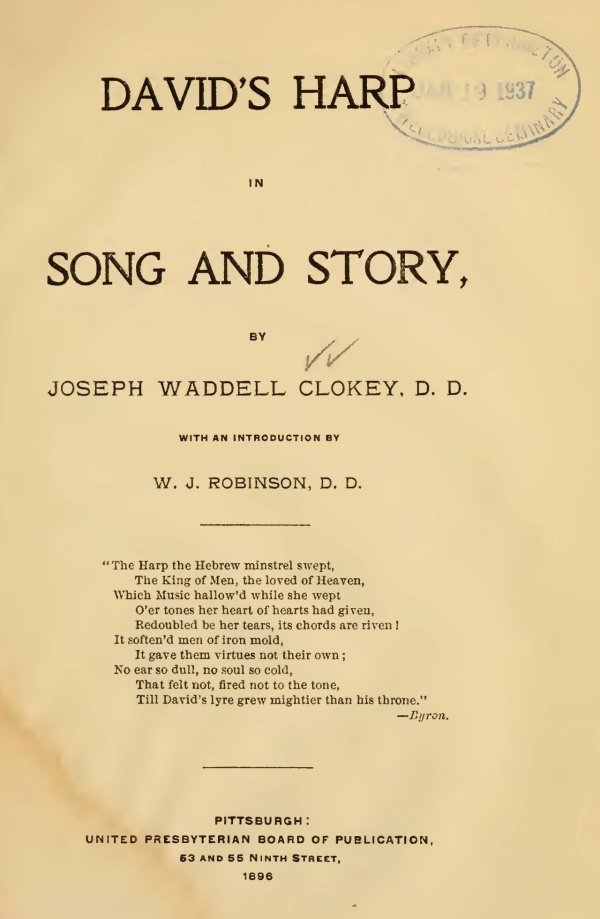(Receive our blog posts in your email by clicking here. If the author links in this post are broken, please visit our Free PDF Library and click on the author’s page directly.)
In his introduction to Joseph W. Clokey’s David’s Harp in Song and Story (1896), William J. Robinson, who served as Moderator of the United Presbyterian Church of North America in 1899, puts forth a plea as if from the very Psalter itself.
The context had to do with a request on behalf of the UPCNA and the Reformed Presbyterian Church of North America (RPCNA) to the General Assembly of the Presbyterian Church in the United States of America (PCUSA) to work jointly at developing a Psalter that all Presbyterians could employ in their praise of God.
Hear the plea from the Psalter itself as Robinson put it.
To this united committee from these three leading bodies of Christians this little work goes with its silent plea. It is sent to you that the Psalms may tell their own story. They come in no spirit of dispute; they do not propose to take issue with you on any of the questions of your Psalmody over which you conscientiously differ. At present they only plead for greater prominence in the praises of Zion. We are part of God's Inspired Word, they say to you, sent down from Heaven through the movings of the Holy Spirit that we may be sung in the praises of God's people. For more than twenty-five centuries we have been in the worship of the church, and what we have done in all these long ages, in comforting and inspiring the people of God, we are still capable of doing for the ages to come. Are you, and are your difficulties and dangers, and experiences, so different from your fathers who loved us, that you can afford to consign us to an obscure corner in your Books of Song! We claim a high place in your material of praise. Read our story and consider our plea.


